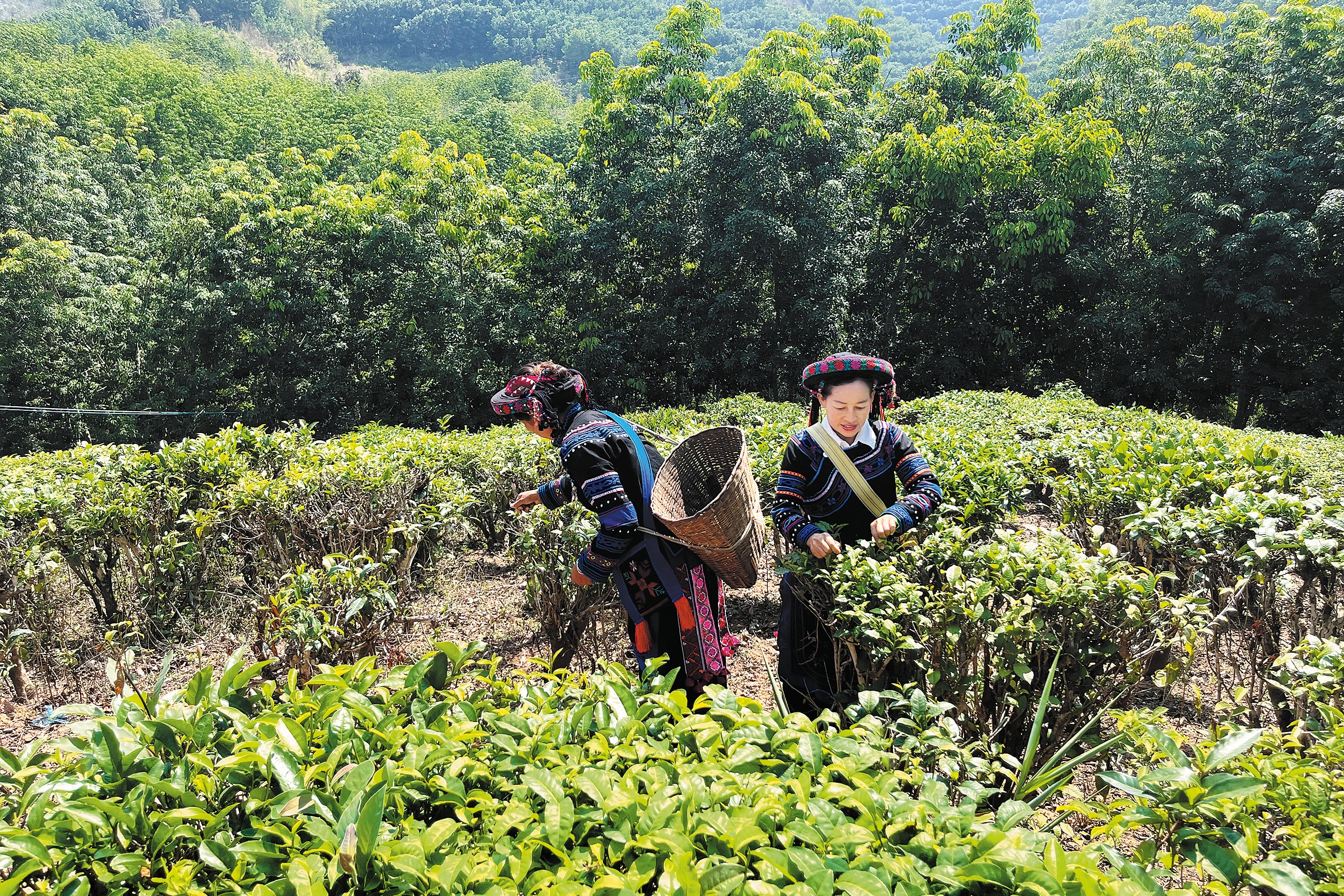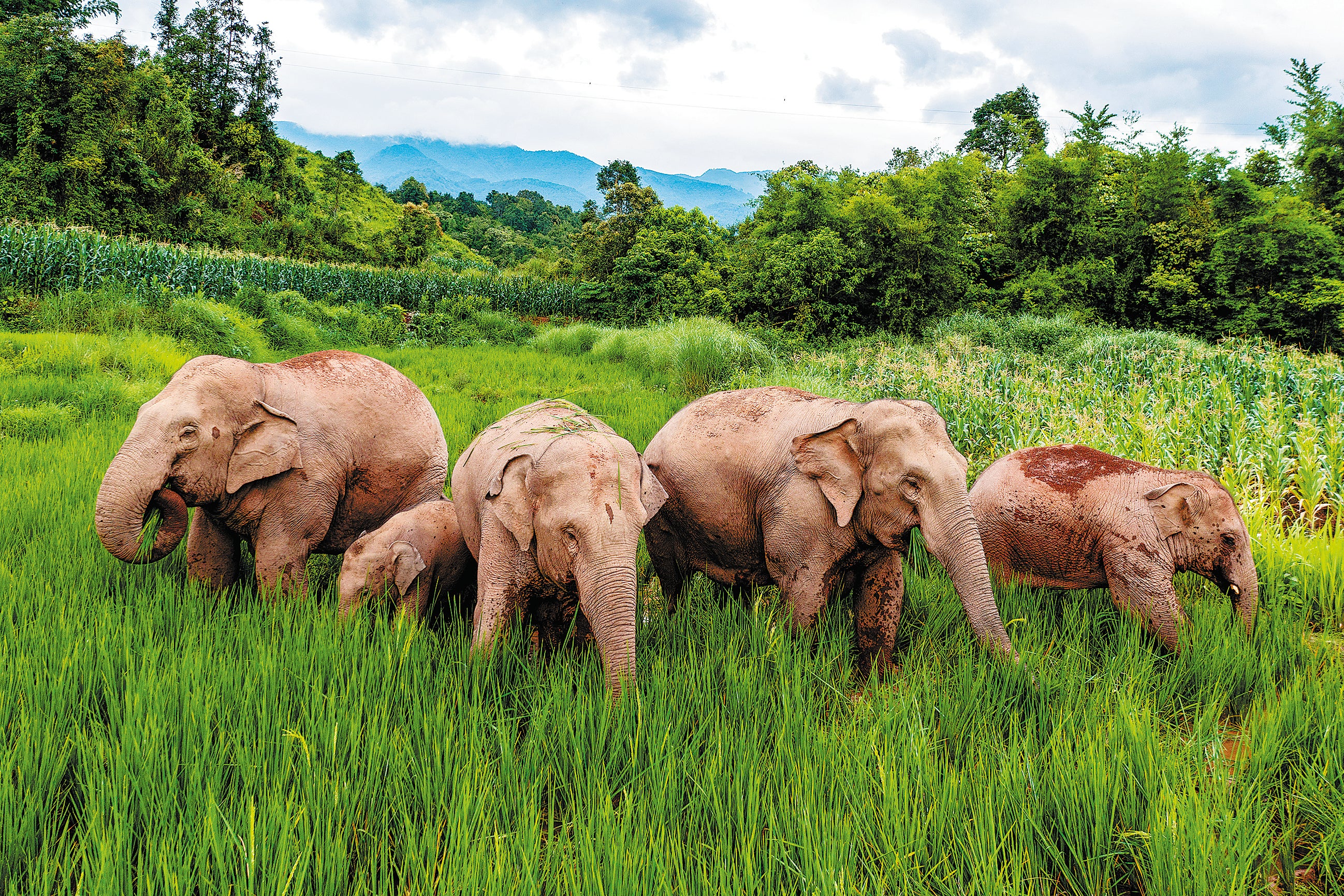Programme helps locals live with elephants
THE ARTICLES ON THESE PAGES ARE PRODUCED BY CHINA DAILY, WHICH TAKES SOLE RESPONSIBILITY FOR THE CONTENTS

Most of China’s wild Asian elephants, more than 280 individuals, are distributed in Xishuangbanna Dai autonomous prefecture in the southernmost part of Yunnan province.
Attracted by the abundance of food such as corn and bananas, and growing accustomed to a human presence, these majestic animals often venture into areas inhabited by people.
The increasing proximity between humans and elephants has led to a rise in conflicts, presenting challenges for many communities that previously had little to no experience with elephant activities.
To address the conflicts, local governments and conservation organisations have implemented various strategies.
In Xishuangbanna, both the governments of Jinghong city and Mengla county have established the Asian Elephant Safety Warning Monitoring Team.
Teams of professional “elephant watchers” use drones to continuously monitor the movements of wild elephants, providing crucial information to local communities and residents.
By offering timely updates on the whereabouts of elephants, the aim is to minimise the risks associated with human-elephant encounters.
Since the launch of its Asian Elephant Protection Programme in 2000, the International Fund for Animal Welfare China has focused its efforts towards helping local communities and residents, said Ma Chenyue, programme manager of IFAW China.

“Local communities and people are at the forefront of human-elephant conflicts. They are experiencing direct pressures from the expansion of wild elephants into their living spaces,” Ma said.
In June 2020, IFAW China, in collaboration with the Mengyang Protection Station of Xishuangbanna National Nature Reserve and the Rainforest Foundation of Xishuangbanna, a local nonprofit, the “Community Livelihood Development to Promote Asian Elephant Protection” project was launched in Daotangqing village, Mengyang township, Jinghong.
This community, comprising 34 households and 150 residents of the Yi ethnic group, had relocated from the core area of the national nature reserve in the late 1990s to aid in the conservation of Asian elephants, a species under national first-class protection, said Cao Dafan, programme officer of the AEP project.
Following their relocation, however, wild elephants also ventured into the area surrounding the village. Once in 2022, Cao said, the villagers witnessed a visit of a herd of 22 wild elephants.
Cao said that the primary source of income for villagers is derived from cultivating rubber trees. However, due to a decline in rubber prices over the past few years, their incomes have also experienced a notable decrease.
“So we worked to help the community explore some alternative sources of income to reduce their dependency on rubber trees,” he said.
At first, Cao and his colleagues decided to promote beekeeping in the village. “Beekeeping is eco-friendly, good for crop cultivation and easy for villagers to learn and master,” he said.
In 2020, the project invested 75,000 yuan (£8,160) to acquire 100 hives of the Chinese bee and an additional 100 empty beehives and distributed them to 10 families in the Daotangqing village.
In addition to providing training on beekeeping techniques, Cao and his team also helped the beekeepers establish management rules.
Besides beekeeping, the international NGO also introduced the cultivation of cash crops such as mangos and macadamia nuts to the villagers.
In 2021, Cao said villagers cleared more than 37 acres of rubber trees surrounding the village because of the plummeting price of rubber.
“So we took the chance to recommend planting mango and macadamia nut trees to them,” Cao said.
In December, IFAW China, the protection station and the rainforest foundation expanded their project to the Konggeliudui community in Dadugang township, Jinghong.
The community is predominantly inhabited by the Hani ethnic group, with 39 households. More than 60 wild Asian elephants roam in the vicinity.
The community’s primary livelihood revolves around rubber tapping and tea cultivation. “During the harvest season, villagers’ chances of encountering elephants in the forest increases,” Cao said.
“So our project is set to combine beekeeping with empowering residents, enhancing their skills and income while reducing their forest activities to minimise human-elephant conflicts.”

Bookmark popover
Removed from bookmarks